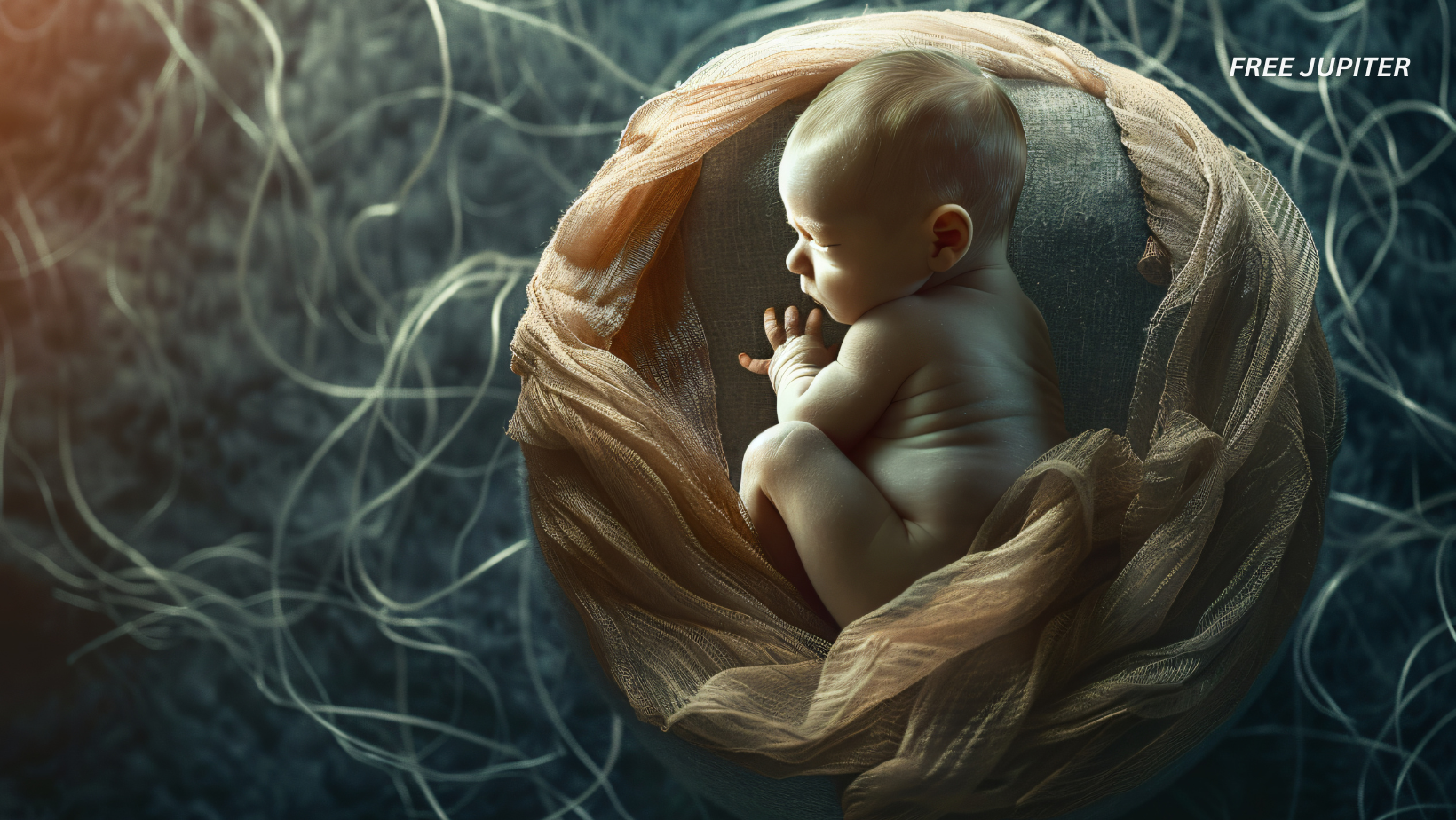Friendly Note: FreeJupiter.com shares general info for curious minds 🌟 Please fact-check all claims—and always check health matters with a professional 💙
For most of us, our earliest memories don’t start until we are around three or four years old. Before that, our minds seem to draw a blank. This common experience, known as infantile amnesia, has puzzled scientists and psychologists for decades. Why do we forget the first years of our lives? A ground-breaking study led by researchers at Yale University and Columbia University may finally have a clear and surprising answer.
Infants Do Form Memories Early On
For a long time, the popular theory was that infants simply could not form long-term memories. The hippocampus, a brain region essential for memory, was thought to be too underdeveloped in babies to retain experiences in any lasting way. But this new study turns that theory on its head.
Researchers used advanced brain imaging techniques, including functional magnetic resonance imaging (fMRI), to monitor the brain activity of infants as young as four months old. What they found was striking. When babies looked at images for the first time, their hippocampus lit up. When those same images were shown again later, the babies’ brains responded differently, suggesting that the brain had recognized and retained the image.
This shows that babies are capable of forming memories much earlier than previously believed. Their brains are not blank slates. They are actively taking in information, storing it, and reacting to it later.
So Why Do We Forget Our Earliest Years?
If babies can form memories, why do adults forget almost everything from their first few years of life? The answer may lie not in the failure to form memories but in the brain’s ability to retrieve them later on.
Scientists now believe that early memories are not erased. Instead, they become buried or inaccessible over time. This could be due to the massive changes the brain undergoes during early development. As new connections form and the brain reorganizes itself, older memories may be pushed aside or encoded in ways that our adult minds no longer understand how to access.
The way language and sense of self develop also plays a role. When we are infants, we don’t have the language skills or self-awareness that help us organize and label experiences. Without a narrative to go along with an event, we may struggle to recall it years later.
Read More: Being Curious May Help To Keep Alzheimer’s Disease At Bay: Study
Language, Identity, and Memory Access
Language is one of the key elements in memory development. As children learn to talk, they begin forming memories in a more structured way. They can start linking words to experiences, making them easier to recall. Before that stage, however, many memories are stored in a nonverbal or sensory format that is difficult to retrieve later.
Another major factor is the development of a personal identity. Babies do not have a clear sense of “I” or “me.” Without that sense of self, early memories often lack the personal connection that anchors them in long-term storage. As the brain matures and a stable identity forms, memory recall improves.
This also means that early memories might still influence us without our conscious awareness. Even if you don’t remember a moment when you were held or comforted, those early experiences still shape emotional responses and attachment patterns later in life.

Emotional Memory and the Infant Brain
Although most people cannot recall exact events from infancy, that does not mean those events are without impact. The brain’s emotional memory systems, like the amygdala, are active early on. This means babies can associate feelings with certain experiences, even if they cannot describe or remember the details.
For example, a baby who receives consistent affection and care may grow up feeling secure, even if they can’t recall specific instances of that care. On the other hand, early experiences of stress or neglect might contribute to emotional challenges later in life, again without clear memory of the original events.
The Hippocampus: More Active Than Expected
The hippocampus plays a central role in forming and storing memories. In this study, researchers discovered that the hippocampus in infants is not only functional but surprisingly active. When shown images, infants had increased neural activity in the hippocampus, similar to patterns seen in adult memory formation.
This suggests that the basic mechanisms of memory are already in place during infancy. The challenge is not with memory creation but with how memories are later accessed, stored, or encoded. Memory retrieval in adults depends heavily on context, language, and narrative structure. These elements are missing or undeveloped in early childhood.
Cultural Memory Differences
Some cultures place more emphasis on early childhood storytelling and memory formation than others. In cultures where parents talk frequently with children about past events, children often begin to form autobiographical memories earlier. This supports the idea that memory is not only biological but also influenced by social and cultural factors.
This also raises an interesting question. Are there ways to help children preserve their early memories? Some researchers believe that talking to young children about their experiences, even before they can fully respond, may help anchor memories in place. Encouraging narrative skills and emotional reflection could play a role in how many early memories survive into adulthood.
Why Infantile Amnesia May Be Useful
Another theory proposes that forgetting early memories might actually serve a purpose. During the first few years of life, the brain is undergoing rapid development. Neural pathways are forming and pruning at an intense pace. Forgetting early memories may be a byproduct of this growth process.
In some ways, starting with a clean slate allows the brain to focus on adapting to new environments and learning essential survival skills. If we held on to every early memory, our brains might become cluttered with irrelevant or outdated information. Memory loss, in this case, may be nature’s way of helping us move forward.
Read More: ‘K’ Is The Most Emotionally Triggering Text Message You Can Send: Study
Lasting Effects Without Memory
Just because you can’t remember something does not mean it didn’t affect you. This is perhaps one of the most profound takeaways from the study. The care, love, stress, or neglect experienced in infancy may leave invisible fingerprints on how we react to the world.
Infants may not recall being soothed, but their nervous systems remember what safety feels like. They may not remember being left alone for too long, but their brains may internalize that stress. These early impressions can shape emotional regulation, confidence, and even physical health in adulthood.
Future Research and Broader Implications
This study opens up new directions for understanding not just infantile amnesia, but memory development as a whole. Future research may explore how to unlock early memories, or how early interventions could support better emotional outcomes in children.
The findings also stress the importance of nurturing environments during infancy. What happens in those early days may shape a person for life, even if they never consciously recall the moments that mattered most.

The Bottom Line
You can’t remember being a baby, not because your brain failed to record those experiences, but because it changes so much that accessing them becomes impossible later on. The new research shows that the infant brain is already capable of forming lasting memories. These memories may still be stored deep within the brain, shaping us silently and invisibly for years.
While we may never retrieve those baby memories word for word, the emotions, patterns, and lessons from those early days continue to echo throughout our lives. Infantile amnesia might hide the past, but it does not erase its impact.










